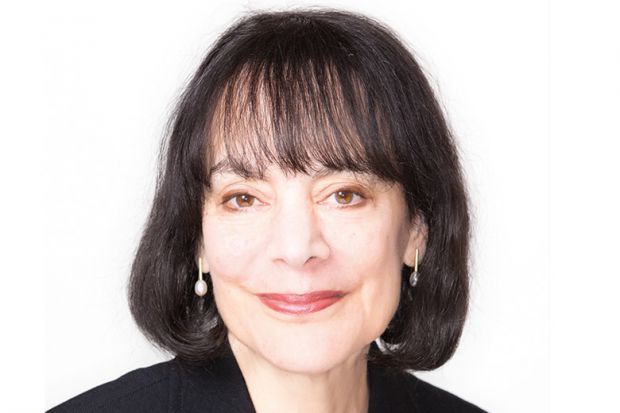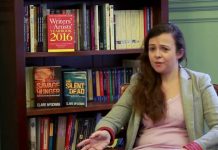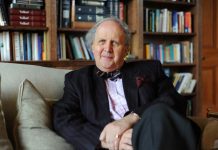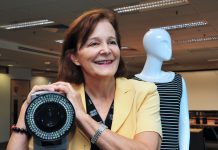Carol S. Dweck is the Lewis and Virginia Eaton professor of psychology at Stanford University. She has previously worked at Columbia and Harvard universities, and at the University of Illinois. Her research examines the origins of people’s self-conceptions, their role in motivation and self-regulation, and their impact on achievement. Her theory of the “growth mindset” has been influential in schools on both sides of the Atlantic. In September, she won the inaugural Yidan Prize for Education Research, worth $4 million (£3 million), which is split between cash and research funding.
Q. Where and when were you born?
Ans. New York City, October 1946.
Q. How has this shaped you?
Ans. I was born during a period of great hope for the future – great faith in progress and in the American Dream. I didn’t realise until later that not everyone was included in that dream. For example, as a female, I was expected to benefit from the dream, but not to be an architect of it. I was exceedingly lucky that, as I grew up, the hope of the 1950s was combined with the growing empowerment of the 1960s and 1970s.
Q. You recently won the inaugural Yidan Prize for your research on the “growth mindset”. Can you tell us more about this theory? And is this something that universities can use to help their students?
Ans. Some students, those in a fixed mindset, believe that their intellectual abilities are simply fixed; however, those in a growth mindset believe that they can grow their abilities, for example, through hard work, good strategies and lots of mentoring. Decades of research show that a growth mindset can lead to greater challenge-seeking and persistence. This includes pursuing a more challenging curriculum, persisting in higher education, or earning higher grades. Arizona State University was transformed by its current president, based, in part, on growth mindset principles. Further, research by Mary Murphy at Indiana University is showing how STEM [science, technology, engineering and mathematics] professors’ mindsets can affect whether their students continue in STEM.
Q. How will you use the prize money to further this research?
Ans. There is a firm foundation for mindset theory, but our real-world implementation is in its infancy. We need to create workshops and interventions that are effective for a greater range of students and we need to create teacher training curricula so educators can create growth mindset cultures in schools.
Q. What is the biggest misconception about your field of study?
Ans. There are many. Here are just three misconceptions:
- That mindset is a simple concept. It’s not – it’s embedded in a whole theory about the psychology of challenge-seeking and persistence.
- That it’s easy to implement. It isn’t. It’s really hard to pass a growth mindset on to others and create a growth mindset culture. It’s not about educators giving a mindset lecture or putting up a poster – it’s about embodying it in all their practices.
- That a growth mindset denies the importance of talent. It doesn’t. A growth mindset is simply the belief that talents and abilities can be developed.
Q. What has changed most in higher education in the past five to 10 years?
Ans. What is exciting is that more and more universities around the world are recognizing the importance of students’ mindsets and learning skills. They are facing the fact that they must prepare students for an unknown world, in which much of today’s knowledge will be obsolete and in which students may face a succession of careers (some of which they may have to invent). We in higher education must create environments that change students from people who just get high grades and test scores into people with tremendous initiative, who love challenges and learn from failures.
Q. If you weren’t an academic, what do you think you’d be doing?
Ans. I can’t imagine being anything else. I love thinking, experimenting, and learning, coming up with new ideas and challenging them or putting ideas together in new ways. I love thinking about how research can help people in their lives. No career seems more exciting and fulfilling to me.
Q. What advice do you give to your students?
Ans. I teach them about the bathtub test. In every field there are topics that are fascinating or meaningful to you, and there are topics that aren’t. I tell my students that if they don’t think about their topic in the bathtub (or shower, as the case may be), perhaps it’s not for them. That’s not to say that they should always be thinking about work, but simply that their topic should be of great personal interest.
Q. What one thing would improve your working week?
Ans. I don’t really have a working week and a non-working week. I work most of the time (I have a hugely supportive husband). So I would like the impossible. I would like a nine-day week, that is, a week with two weekends – one for work and one for leisure activities. Dream on, you say?
Q. What keeps you awake at night?
Ans. I am a big-league, Olympic-type sleeper. When people say, “What did you think of that huge thunder and lightning storm last night?” I say, “What storm?” I might have some waking moments worrying that I won’t have enough time to complete all that I would like to accomplish, but I have so many incredible students and colleagues to carry on the research that I soon doze off again. It is truly sleep-inspiring to know that there are all these young researchers who share my passion and will pursue it with more energy than I ever had.






















